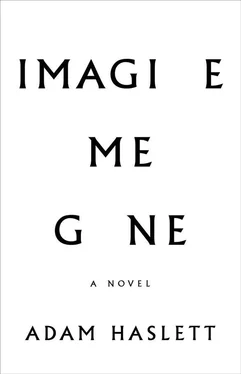upon the death of my successors
I am temporarily unable to make payments because:
“I had learned that a death had occurred that day which distressed me greatly — that of Bergotte. It was known that he had been ill for a long time past. Not, of course, with the illness from which he had suffered originally and which was natural. Nature scarcely seems capable of giving us any but quite short illnesses. But medicine has developed the art of prolonging them. Remedies, the respite that they procure, the relapses that a temporary cessation of them provokes, produce a simulacrum of illness to which the patient grows so accustomed that he ends by stabilising it, stylising it, just as children have regular fits of coughing long after they have been cured of the whooping cough. Then the remedies begin to have less effect, the doses are increased, they cease to do any good, but they have begun to do harm thanks to this lasting indisposition. Nature would not have offered them so long a tenure. It is a great wonder that medicine can almost rival nature in forcing a man to remain in bed, to continue taking some drug on pain of death. From then on, the artificially grafted illness has taken root, has become a secondary but a genuine illness, with this difference only, that natural illnesses are cured, but never those which medicine creates, for it does not know the secret of their cure.”
— M. Proust, vol. 5, The Captive
My plan for the resumption of payments is:
As you well know from our correspondence, after years of training in the ’90s, I was selected by the Department of Education to voyage on their first Student Loan Probe to Jupiter, as one of four debitnauts. We traveled for years, passing through nebulae of internships and retail, through the wake of an imploding technology boom, and on through the outer rings of bankruptcy, before finally reaching the planet’s gaseous surface. Our hope was to make contact with the lost colony of the underemployed. What we found was distressing. In the early years, they had kept up their bonhomie, relying on peer counseling and the nostalgic rebranding of American canned beer. But their birthrate had dropped, and a persistent anxiety storm beginning in the early aughts had killed off the slackers, their priestly class, leaving them without a cosmology. Hopes of ever getting off-planet had dwindled, and the colony had renamed itself Fools of the Humanities. Our greatest surprise, however, concerned their weight. We’d expected a diet of burritos and helium. But to our astonishment, one provisioner, Eli Lilly, had remained in radio contact with them all along, and had been sending pallets of the atypical antipsychotic Zyprexa from a rocket pad in Kazakhstan. The colonists had been taking the drug for years. Their average weight was up to 280. Diabetes and dyskinesia were endemic. As one art history BA put it to me, When Christ asked for water on the cross, they gave him vinegar (whereupon, she might have added, he gave up the ghost). But really, another colonist asked, who wouldn’t want major weight gain and a facial tic while aging and single? He spoke, I must confess, with some anger. He had been thin once, and even then had struggled to see himself as attractive. There seemed little hope of that now. Apparently, the company’s shipments of the drug had ramped up not long before its patent was due to expire. Their representatives had begun pressing it on doctors as an off-label cure for everything from war trauma to stuttering, and it wasn’t until several years later that its disastrous side effects were fully appreciated. Several colonists wanted to join the class-action lawsuit, but the rocket traffic was one-way. Empathizing with them as I did, I wished I could do something to help, yet all we had been given to distribute to them were forbearance request forms, which they quickly burned for heat. I returned an unchanged man.
In addition to the above-referenced loans, I owe:
The inalienable privilege of my race to the victims of the Middle Passage, a debt whose repayment has proven tricky to schedule, given the endless deferments, if not forbearances, and the way that the blood of slavery tends to run clear in the tears of liberals.
The sum total of my current assets is:
The knowledge that the psychotic violence of making black people black so that white people can be white runs through me as surely as it does through the bodies of all the jailers and the jailed.
Part II. Terms & Conditions
I understand (1) that I live with my mother; (2) that she is on the verge of selling her home to pay my debts; and (3) that my request for forbearance will never be approved.
I further understand: (a) That in the fall of 1803, along the coast of Mozambique, a Portuguese frigate named the Joaquin loaded 300 abducted Africans into its hold and headed south toward the Cape of Good Hope. (b) That a few days after departure, the people held belowdecks began to die. They died slowly at first, at an unremarkable rate of one a day, but after a month and a half, as the ship rounded the tip of the continent and began its Atlantic crossing, death became more frequent. For the next four months, the captives lay shackled in an airless dark, pressed against one another on a bed of their own excrement, vomit, pus, and blood, their bodies slick with waste putrefying in the equatorial heat as they woke chained to the corpses of strangers or parents or children, whom the crew eventually removed and threw overboard to the trailing sharks. (c) That by the time the Joaquin reached the Spanish port of Montevideo, 270 of the original 300 had died. Fearing contagion, the city surgeon ordered the ship back out to sea. With a storm blowing in off the pampas, the captain at first refused. But when the harbormaster threatened him with arrest and seizure of his ship, he relented and made for open water. Fierce winds quickly shattered the frigate’s three masts and the ship nearly sank. Attempting to make it back to port, it was beached in the shallows of the Río de la Plata, where it remained for several more weeks while its fate was decided. (d) That the Spanish merchant who owned the ship wanted to auction the survivors to offset his losses, and sued the port surgeon for incompetence, demanding that his cargo be allowed to disembark. To resolve the dispute, city officials set up a commission of inquiry, and appointed five doctors experienced in the treatment of ailing slaves. (e) That observing that none of the officers or sailors of the Joaquin had died, the commission concluded, to most everyone’s surprise, that the slaves had not died of infection. They had died from dehydration, and from what the doctors called melancolía . In the words of Carlos Joseph Guezzi, a Swiss-Italian physician, the loss of their homes and families, together with the conditions of their transit, had induced a “total indifference to life,” “a cisma, ” or schism, that amounted to “an abandonment of the self.” (f) That because this condition was deemed noncommunicable, the merchant was free to bring his chattel ashore and sell them on the open market. And finally, (g) that during their passage, the captives aboard the Joaquin were often heard to sing.
Finally, I hereby certify that I don’t pretend to know with any certainty why it is that I keep coming back to these scenes, to imagining these men and women and children chained in the rocking dark. While it would be most legible, and even palatable, to chalk it up to the theft of four hundred years of labor, to the profits of the trade that extend by corporate succession right up through to the bank that lent me the money to study the history of their own barbarism, it isn’t economic reasoning or public justice that won’t let me go. It’s the withered bodies, the cries of the dying, the blood-soaked decks, that carnival of evil that each morning I try to medicate into the floor. The fact is that when I read the story of the Joaquin, I feel understood. Not in any literal sense — the comparison of my dread to theirs would be grotesque — but in the unrelenting terror, in that schism of the mind. Which is how I know now that the dead generations don’t haunt down tidy racial lines, as if there were such a thing. The psychosis is shared. I was born into the fantasy of its supremacy. Others are born into the fantasy’s cost. But the source of the violence is the same. The work I do is for no one’s sake but my own.
Читать дальше












